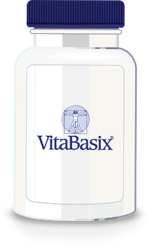Cholesterol is a component of every single cell, a building block of its membrane and a natural substance of individual hormones. It is transported via the bloodstream. An increase in blood lipids has been observed for decades, increasing the risk of heart problems. Science distinguishes between two forms: LDL cholesterol (English abbreviation for “low density lipoprotein”): It has the undesirable property of adhering to the inner walls of blood vessels and forming deposits there. Its counterpart HDL cholesterol (abbreviation for “high density lipoprotein”) can loosen LDL cholesterol from the walls of the blood vessels.
LDL is often referred to as “bad” cholesterol, as these transport molecules are deposited on the inner walls of blood vessels with the transported fatty substances. HDL is considered “good” cholesterol because it can protect against such dangerous developments. The ratio of the two groups to each other determines how high the risk is. A reduction of LDL cholesterol has long been considered a preventive measure to protect the heart, at the same time an increase of HDL levels in the blood should be aimed for.
Niacinamide (vitamin B3) and red rice yeast are two nutrients that can have a positive effect on cholesterol and blood sugar levels.
Red rice yeast: Red rice yeast has been used in Asian folk medicine for centuries. The production is simple: rice grains are soaked in water. Raw or steamed for sterilisation, the rice is fermented for three to six days at room temperature with the bacterial culture Monascus purpureus. At the end, it turns bright red on the inside and reddish on the outside. Red rice yeast contains sterols and monacolins. Monacolin K can inhibit the conversion of the most important enzyme of cholesterol synthesis in the liver. Since then, other nutrients have been discovered in the rice that are said to have similar effects.
Called niacinamide or vitamin B3, it is found in liver and other offal, meat, eggs, fish, nuts, legumes, grains, milk and avocados. This nutrient can support the nervous system and help keep energy metabolism in the normal range. Niacinamide can, among other things, lower the amount of LDL cholesterol and increase the amount of HDL cholesterol. It can also support blood circulation throughout the body.



 Chronobrands
Chronobrands



Reviews
There are no reviews yet.